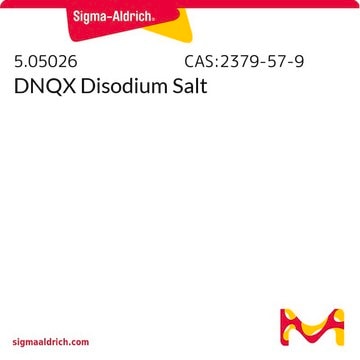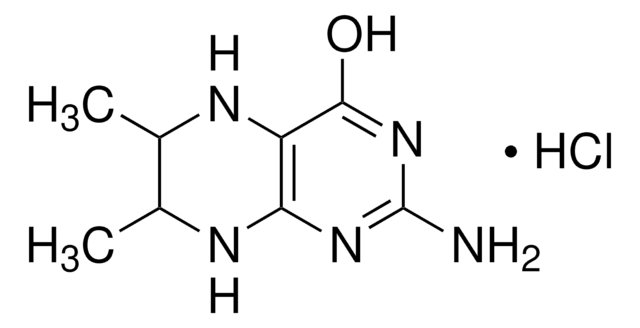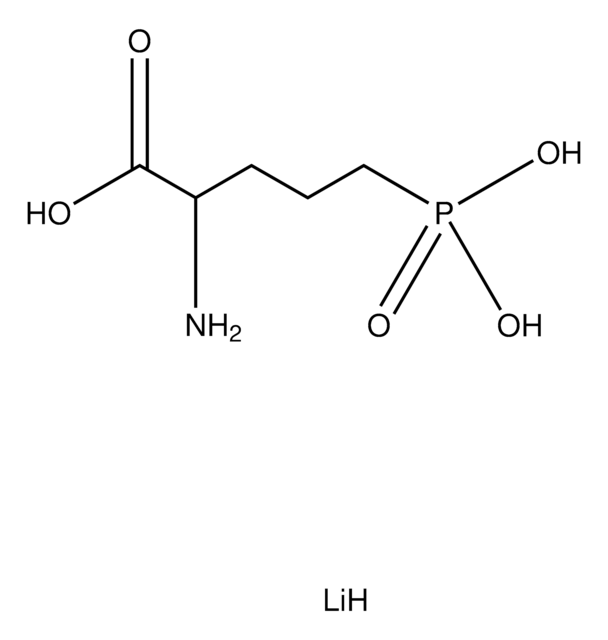Wichtige Dokumente
D0540
DNQX
≥98% (TLC)
Synonym(e):
6,7-Dinitroquinoxaline-2,3(1H,4H)-dione
Größe auswählen
Größe auswählen
About This Item
Empfohlene Produkte
Qualitätsniveau
Assay
≥98% (TLC)
Form
powder
SMILES String
[O-][N+](=O)c1cc2NC(=O)C(=O)Nc2cc1[N+]([O-])=O
InChI
1S/C8H4N4O6/c13-7-8(14)10-4-2-6(12(17)18)5(11(15)16)1-3(4)9-7/h1-2H,(H,9,13)(H,10,14)
InChIKey
RWVIMCIPOAXUDG-UHFFFAOYSA-N
Angaben zum Gen
human ... GRIA1(2890) , GRIA2(2891) , GRIK1(2897) , GRIK2(2898) , GRIK3(2899) , GRIK4(2900) , GRIK5(2901)
mouse ... Gria1(14799)
rat ... Gria1(50592) , Grik1(29559) , Grik4(24406) , Grin2a(24409)
Anwendung
Biochem./physiol. Wirkung
Leistungsmerkmale und Vorteile
Hier finden Sie alle aktuellen Versionen:
Analysenzertifikate (COA)
Die passende Version wird nicht angezeigt?
Wenn Sie eine bestimmte Version benötigen, können Sie anhand der Lot- oder Chargennummer nach einem spezifischen Zertifikat suchen.
Besitzen Sie dieses Produkt bereits?
In der Dokumentenbibliothek finden Sie die Dokumentation zu den Produkten, die Sie kürzlich erworben haben.
Kunden haben sich ebenfalls angesehen
Artikel
DISCOVER Bioactive Small Molecules for Neuroscience
Active Filters
Unser Team von Wissenschaftlern verfügt über Erfahrung in allen Forschungsbereichen einschließlich Life Science, Materialwissenschaften, chemischer Synthese, Chromatographie, Analytik und vielen mehr..
Setzen Sie sich mit dem technischen Dienst in Verbindung.















